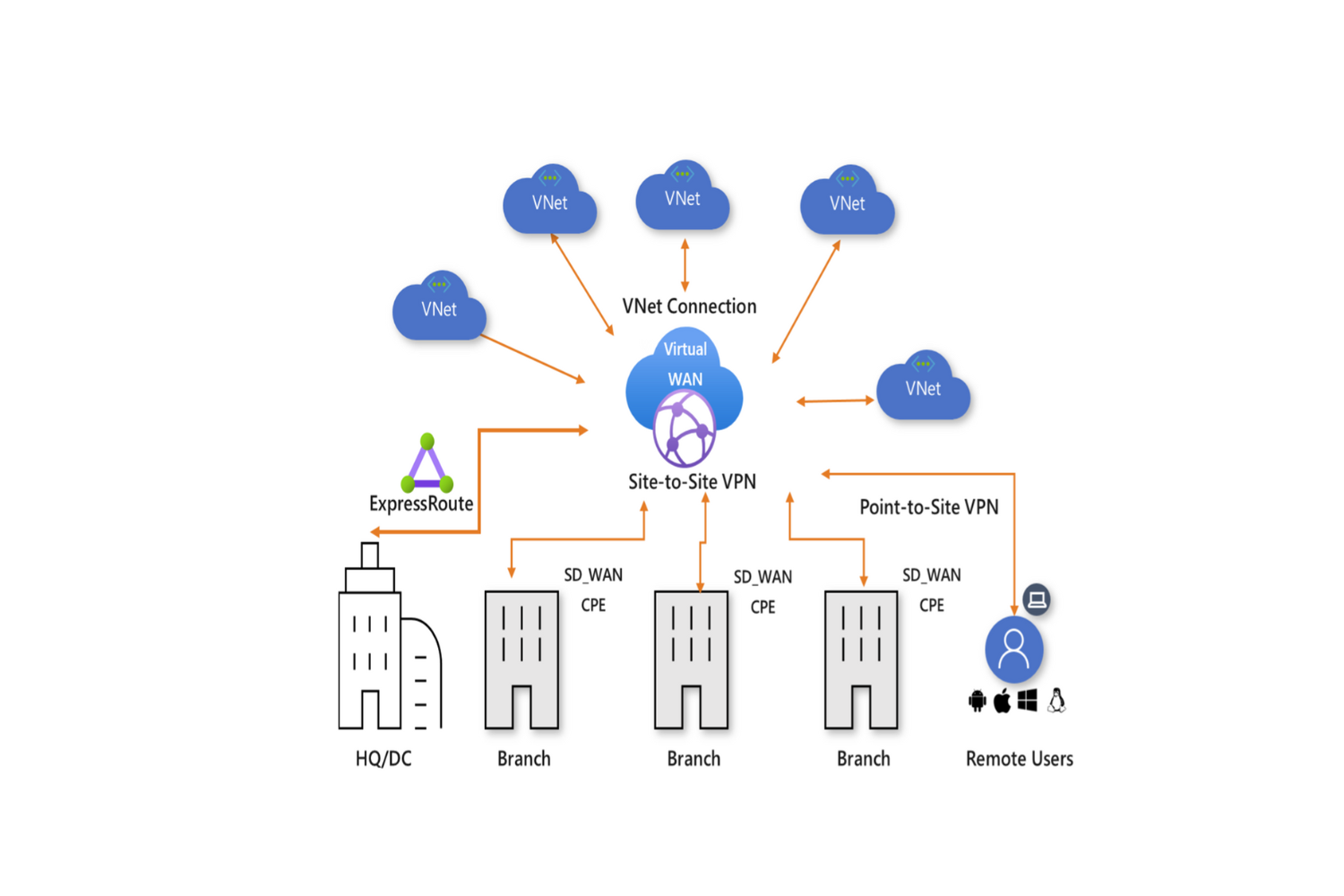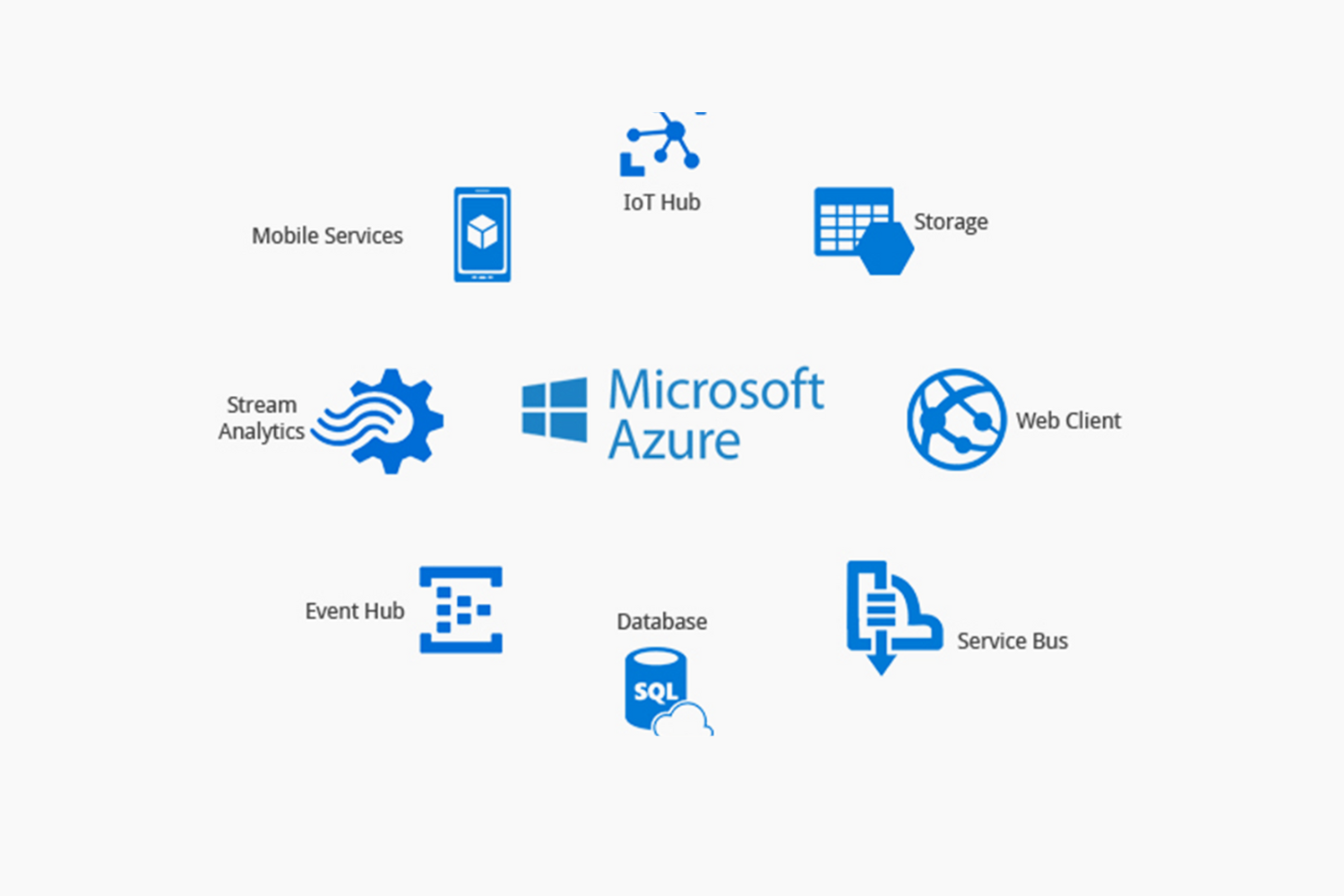
MICROSOFT AZURE CLOUD NETWORKING
Microsoft Azure Cloud Networking refers to the set of services and features provided by Microsoft Azure for connecting, securing, and managing network resources in the cloud. It allows businesses to create, configure, and scale networks, ensuring reliable and secure communication between cloud-based applications and services, on-premises resources, and the internet. Azure’s networking solutions include virtual networks, load balancers, VPN gateways, and more, making it an essential part of building and maintaining cloud-based infrastructures.
FUNDAMENTALS OF MICROSOFT AZURE CLOUD NETWORKING
1.Virtual Networks (VNets): Create isolated network environments for your resources.
2.Load Balancers: Distribute incoming network traffic across multiple resources.
3.VPN Gateway: Establish secure connections between on-premises networks and Azure.
4.ExpressRoute: High-speed, private network connection to Azure.
5.Network Security Groups (NSGs): Control inbound and outbound traffic for resources.

6.Content Delivery Network (CDN): Improve content delivery and website performance.
7.Traffic Manager: Distribute user traffic across global data centers for high availability.
8.Azure Firewall: Protect your network resources from external threats.
9 .Virtual WAN: Simplify and optimize network connectivity for branch offices.’
10.Azure DDoS Protection: Mitigate distributed denial of service attacks on your resources.
ROLE OF MICROSOFT AZURE CLOUD NETWORKING
The role of Microsoft Azure Cloud Networking is to enable businesses to establish, manage, and secure their network infrastructure in the cloud efficiently. It provides the foundation for connecting and orchestrating resources, whether within Azure or between on-premises and the cloud. This networking solution ensures data reliability, scalability, and performance, while offering tools to enhance security and optimize network traffic. It plays a critical role in facilitating communication between various applications and services, supporting seamless operations and data exchange in the digital landscape.
IMPORTANCE OF MICROSOFT AZURE CLOUD NETWORKING
The importance of Microsoft Azure Cloud Networking lies in its ability to establish secure and efficient communication pathways within the cloud and between on-premises infrastructure. It ensures that data flows reliably, applications perform optimally, and resources remain accessible, contributing to a seamless and productive digital environment. Additionally, Azure Cloud Networking provides essential security measures to protect against cyber threats and DDoS attacks.

BENEFITS OF MICROSOFT AZURE CLOUD NETWORKING
1.Reliable Connectivity: Ensures consistent and dependable network connections.
2.Scalability: Easily scales to accommodate changing workloads.
3.Security: Provides robust network security and protection.
4.Efficiency: Optimizes network traffic and performance.
5.Hybrid Integration: Facilitates seamless connection between on-premises and cloud resources.
6.Global Reach: Enables global data distribution and accessibility.
7.Cost-Efficiency: Reduces operational and infrastructure costs.
8. Agility: Adapts to evolving business needs and IT requirements.
JOB ROLES OF MICROSOFT AZURE CLOUD NETWORKING
Network Administrator
Network Engineer
Security Analyst
Cloud Solutions Architect: DevOps Engineer
Support Specialist: Network Operations Manager
Azure Solution Specialist
Cloud Consultant
Hybrid Cloud Engineer
Salary:
Network Administrators from SCODEEN Global have received packages ranging from ₹13 Lakhs to 35 lakhs per Annum.
Course Highlights/ Details:
1. Suited for students, fresher’s, professionals, and corporate employees
2. Live online classes
3. 4-month program
4. Certificate of completion
5. Decision Oriented Program of Analysis
6. Live Classes by highly experienced faculties
7. Hands-on experience with real-life case studies.

CONCLUSION:
In conclusion, Microsoft Azure Cloud Networking is a vital component of the Azure ecosystem that facilitates the efficient and reliable communication of data and services across the cloud. With a wide range of networking services, such as Virtual Networks, Load Balancers, VPN Gateway, and ExpressRoute, Azure offers the scalability, security, and performance required for modern cloud-based applications. Its global reach with data centers in numerous regions, robust network security features, and integration with Azure’s other services make it a compelling choice for businesses seeking a dependable and versatile cloud networking solution. Microsoft Azure Cloud Networking empowers organizations to establish and manage their network infrastructure in a dynamic and cost-effective manner, enabling them to harness the full potential of the cloud for their digital initiatives.

